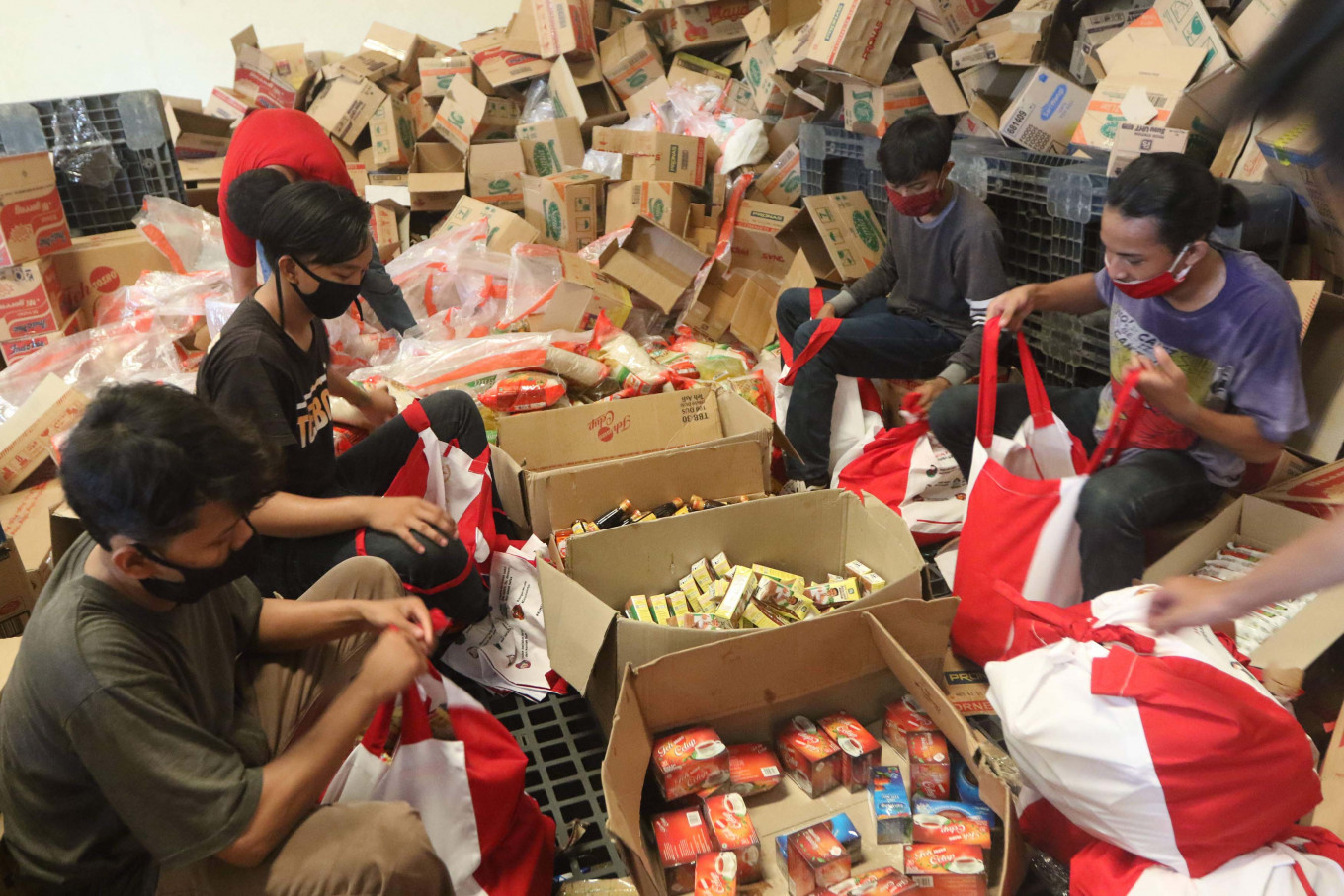Popular Reads
Top Results
Can't find what you're looking for?
View all search resultsPopular Reads
Top Results
Can't find what you're looking for?
View all search resultsDeveloping integrated data system for Indonesia
The pandemic is now a test of the readiness of data management and bureaucracy capacity to respond to the disaster that has affected all sectors.
Change text size
Gift Premium Articles
to Anyone
D
ata is indeed the new oil, the most valuable resource as cited by Clive Humby in a 2006 report, showing how data mining and utilization in the private sector has been very advanced. Even in Indonesia, more state-owned enterprises (SOEs) and private unicorns are using big data centers. Telkomsel and Gojek, for example, have explored and used analytics of human movement patterns, for decision-making and to dominate the market.
Unfortunately, in the public sector, the data use trend in Indonesia is still in slow motion mode. Over the past few weeks President Joko “Jokowi” Widodo and several ministers have emphasized the importance of data accuracy so that cash transfers to mitigate the impacts of the COVID-19 pandemic reach the targeted beneficiaries.
At least three cash transfers could be cited, namely village cash transfer (BLT), social cash transfer (BST) and preemployment support. Before the pandemic, the government has regularly implemented poverty alleviation efforts as conditional cash transfer (PKH) and staple food program (BSP).
The main challenges in addressing the social assistance are not only targeting accuracy but also avoiding overlaps. The social affairs agency in Temanggung regency, Central Java uncovered 1,500 families that had received double transfers. In Bantul regency, there were 171 misallocation cases in the distribution of BST. As of June, the Indonesian Ombudsman received 1,242 complaints related to similar cases.
The direct cause of the misallocation is that Indonesia does not have comprehensive beneficiaries’ core data. The Social Affairs Ministry has built integrated social welfare data (DTKS) since 2015 but it still needs to be integrated with the data on the all beneficiaries of other social assistance programs.
The population data (NIK) is still not fully interoperable with DTKS. It would be a very simple method to use NIK as unique code for data synchronizing. When the Bondowoso regency administration manually synchronized DTKS with the national health insurance program (JKN) beneficiary data last year, it found 24,000 data errors, ranging from double data, beneficiaries that had moved or died, as well as NIK errors. The eventual data cleaning saved Rp 7.6 billion (US$524,000) in budget spending.
The pandemic is now a test of the readiness of data management and bureaucracy capacity to respond to the disaster that has affected all sectors. In the future, the DTKS must immediately become full-fledged data, with the government having data for each individual/family entitled to receive any assistances from the national and subnational government.
The Social registry approach that has been tried in many countries, such as Brazil and the Philippines, deserves to be considered. Citizens’ economic status is tracked regularly, so that the government knows what kind of support is appropriate.
Citizens who belong to hardcore poverty, for example, can only get help for basic needs. While those who are still productive and have specific products are assisted by a market linkage program. The data cleaning mechanism can be done through two channels, first the social welfare information system (SIKS) as DTKS backbone, and all assistance programs should be tabulated into that platform.
Second, the platform should be an interoperable village existing platform, namely the village information system (SID). More application developers have collaborated with the village administrations and used similar program languages. Then the remaining work is to make a protocol so that applications are smoothly interoperable and analytic results can be used to make decisions.
Within a broader framework, the government already has Presidential Regulation No. 39/2019 and Law No. 4 /2008. Both regulations should help the government integrate business processes not only in ministries and other state institutions but also with local governments so that data can be vertically integrated.
Unfortunately, there are still many gaps in its implementation. One of them is that there is no road map of or single data action plan. The other issue is that interpretations of Law No.39/2019 are also diverse, and most are merely limited to which data is utilized and that which is stored.
The Education and Culture Ministry dashboard, for example, should not merely display a graph of how many children are not in school but could also show an analytic overlay on child marriage rates and the number of underage workers. Utilizing artificial intelligence, projection could be developed to calculate the needs for building classes and recruiting teachers.
India for example, with a population of 1.3 billion people, in March declared that it had almost finished compiling a database of all its citizens. India is among the quickest to follow developed countries in using a single identity number as a basis for integrated government data.
In the next few years, Indonesia’s the data integration will hopefully also include taxation, criminal records, banking and basic public services. For sure there are still a lot of work to be done with regard to single data. There are still ongoing bureaucratic reform efforts, including solving sectoral ego problems, the deliberation of the personal data protection bill to avoid data misuse and strengthening the bureaucratic work culture.
***
The writer is responsive governance and public financial management coordinator for the Abt Associates – KOMPAK Program. The views expressed are his own.










